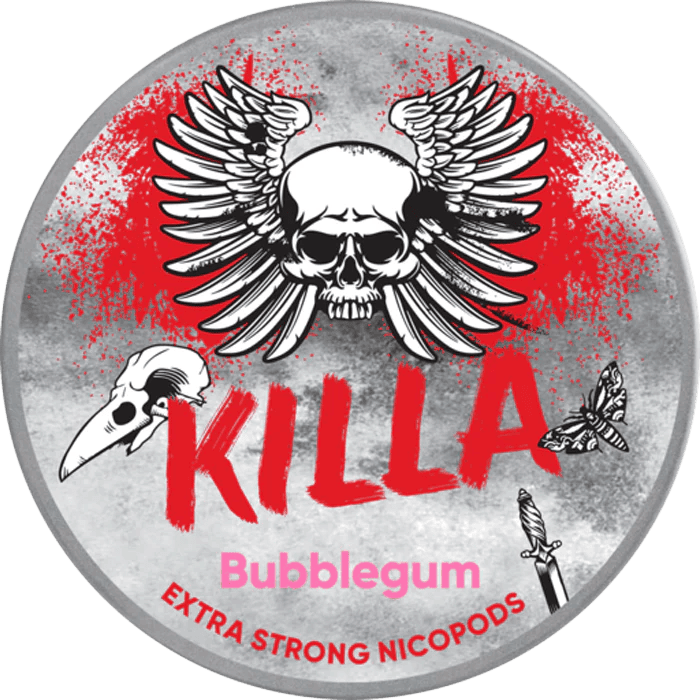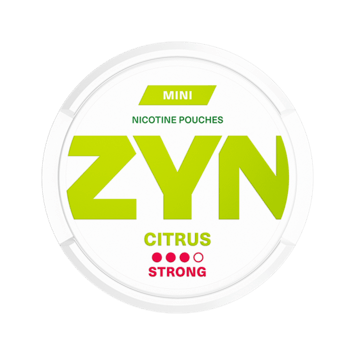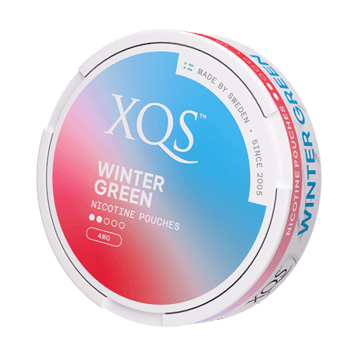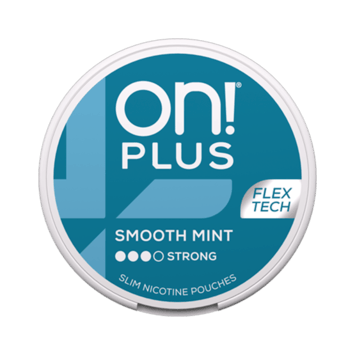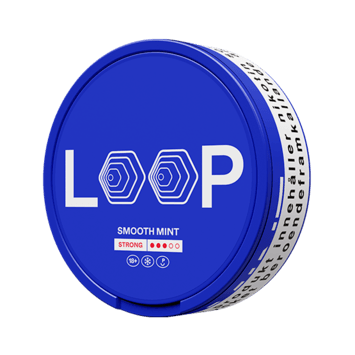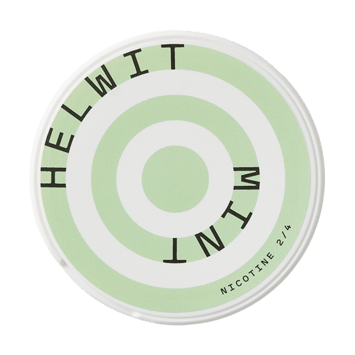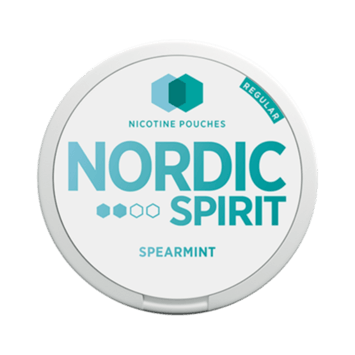What You Need to Know About Zynn: Is it bad for you?
Philip Plainstein

Zyn pouches are small bags with nicotine, water, flavour, sweeteners, and plant-based fibres. They say they are safer than smoking. But, it’s best to check with a doctor before you use them. They are not yet approved by the FDA. This makes them different from other nicotine help, like gum or patches. Zyn pouches don’t have tobacco leaf, like chewing tobacco or snus do. But, they might still cause problems like hiccups, sore mouth, or an upset stomach. We need more studies to know if they are truly safe long term.
Key Takeaways:
- Zyn pouches are small bags containing nicotine, water, flavorings, sweeteners, and plant-based fibres.
- They are marketed as a safer alternative to smoking, but consulting with a doctor is important before using them.
- Nicotine pouches do not contain tobacco leaf, which sets them apart from other smokeless nicotine products.
- Possible side effects of Zyn pouches include hiccups, gum irritation, nicotine addiction, sore mouth, and upset stomach.
- More research is required to determine the long-term safety and effectiveness of nicotine pouches.
What Are Nicotine Pouches and How Do They Work?
Nicotine pouches are tiny bags placed between the lip and gum. They work by absorbing nicotine into the blood. This happens through the membranes in the mouth. They are a discreet way to get a nicotine hit without smoking or swallowing.
They contain nicotine, water, flavours, sweeteners, and plant fibres. Zyn and other brands market them as safer because they lack tobacco. This makes them less harmful than traditional cigarettes. The aim is to offer a cleaner way to get nicotine without the bad effects of tobacco.
The main ingredient in nicotine pouches, nicotine, is a stimulant. It makes you feel good and eases withdrawal symptoms. When you use these pouches, nicotine goes into your blood quickly. This provides a fast way to get your nicotine fix.
Nicotine pouches are a discreet and safer way to get nicotine. Without tobacco and burning, they aim to be a cleaner option.
But, we need more studies to be sure about their safety and how well they work. They’re seen as safer than smoking. Still, talking to a doctor is important before you start using nicotine pouches. It’s wise to look at FDA-approved ways to quit or manage your nicotine use.
Potential Risks and Side Effects of Zyn Pouches
Compared to smoking or vaping, Zyn pouches might seem safer. However, they still have risks. Zyn’s nicotine is very addictive. It can up the chance of heart problems for new nicotine users. So, knowing the downsides of Zyn pouches beforehand is key.
Gum irritation: Some might see their gums get irritated with Zyn. Look out for redness, swelling, or pain in your gums.
Nicotine addiction: Zyn pouches have nicotine, which is super addictive. Using them often can hook you, making it tough to quit.
Sore mouth: Zyn pouches could make your mouth feel sore. This might affect how you eat, drink, or talk.
Upset stomach: They might mess with your tummy, causing nausea or vomiting. These effects can make you feel just generally unwell.
Hiccups: Zyn pouches might give you hiccups. While usually not serious, they can annoy some people.
Everyone’s experience can be different. It’s also not certain that you’ll face these issues. But, knowing these risks is crucial before trying Zyn or similar products.
Next, we’ll look at how nicotine pouches compare to smoking and vaping. This will help us understand the different health risks they pose.
Comparison of Nicotine Pouches to Traditional Smoking and Vaping
Experts know little about the long-term effects of nicotine pouches. Nicotine pouches may be safer than smoking. They expose you to less nicotine and no cancer-causing chemicals. But, they still have risks, like addiction, which can harm your body.
Less Nicotine Exposure
Nicotine pouches have less nicotine than cigarettes or e-cigs. They can help people cut down on nicotine. But, even with less nicotine, they are still addictive.
“Nicotine pouches offer a potentially reduced nicotine exposure compared to traditional smoking or vaping methods. However, it is crucial to remember that nicotine addiction can occur regardless of the delivery method.”
Absence of Harmful Chemicals
Cigarettes and vaping contain harmful chemicals. These include tar and carbon monoxide. Even vaping has its risks, like inhaling metals.
Nicotine pouches avoid these risks because there’s no burning or smoke. They are made from safe food products. So, they don’t have as many toxins as cigarettes or e-cigs.
Remaining Uncertainties
We don’t fully know the health effects of nicotine pouches yet. They might cause problems with teeth or gum over time. More research is needed.
“As an emerging product, nicotine pouches require further research to fully understand their potential health impacts. Continued monitoring and investigation by health authorities are necessary to evaluate the safety and long-term effects of these products.”
Comparison of Nicotine Pouches, Smoking, and Vaping
| Aspect | Nicotine Pouches | Smoking | Vaping |
|---|---|---|---|
| Nicotine content | Varies by the brand, but it’s usually less than smoking | Cigarettes have more nicotine than pouches | E-cigs can be nicotine-free or high-nicotine |
| Harmful chemicals | They don’t use tobacco, so they have fewer chemicals | Cigarettes have tar and other dangerous chemicals | E-cigs can have harmful metals and compounds |
| Delivery method | Use orally to get nicotine through the mouth | Breathe in smoke with harmful chemicals | Breathe in e-cigarette vapours with nicotine and other chemicals |
| Long-term effects | Not fully known, more research needed | We already know smoking causes many health problems | Research is ongoing about the risks of vaping |
Source: Own research
While nicotine pouches are a better alternative to smoking, we’re not sure of their long-term effects. For your health, it’s best to quit nicotine entirely. Talk to a doctor for help stopping smoking or cutting down on nicotine.
Concerns about Marketing and Appeal to Young People
Nicotine pouches, like Zyn, are sold in fancy packs and many tastes. This way of selling them is worrying experts. They fear young folks and those who don’t smoke yet might not know nicotine’s dangers.
The shiny packs and yummy flavours make these pouches look good, especially to the young. Lots think they are fun and not bad for you, all thanks to the adverts aimed at them.
On top of that, stars on social media push nicotine pouches, making them look cool. They often share videos of trying the tastes. This makes them even more interesting to those who are younger.
These ways of selling have caught the attention of officials and health groups. They are now working hard to tell the young about nicotine’s risks and stopping them from trying these pouches.
“The way nicotine pouches are being sold, so nice and with many flavours, is dangerous. It tricks young folks into becoming hooked on nicotine. We need rules and actions to make sure young people know about the real risks of these pouches.”
It’s critical to have strong rules against selling nicotine pouches to the young. This includes big warnings on the packs and telling everyone the risks through adverts. Teaching the young about these dangers is very important too.
If we work on the way they are sold, make them less attractive, and educate people, we can keep the young safe from getting addicted to nicotine.
Statistics on Nicotine Pouch Usage Among Young People
| Age Group | Percentage of Individuals Who Have Tried Nicotine Pouches |
|---|---|
| 13-15 | 15% |
| 16-18 | 25% |
| 19-21 | 35% |
The table above shows how many different ages tried nicotine pouches. It’s clear many young people tried them. This makes it very important to deal with how they are sold and marketed to the young.
Use of Nicotine Pouches for Smoking Cessation
Nicotine pouches, like Zyn, help some people quit smoking. They are good tools for many on their quit journey. It’s key to remember that using these can lead to nicotine addiction.
For those looking to quit smoking, knowing the right info about nicotine pouches is vital. They might not work as well as other FDA-approved options. These include patches, gum, lozenges, nasal sprays, and inhalers. Many studies show these to be successful in quitting smoking.
Using nicotine pouches keeps away the smoke and is a private way to get nicotine. But, talking to a doctor before using them is wise. Exploring all your options is a must. Based on your health and needs, choose the best FDA-approved therapy.
“Nicotine pouches can help stop smoking, but they shouldn’t be the only way. Talking to a doctor to find the best plan is crucial.”
– Dr. Emma Johnson, Smoking Cessation Specialist
Deciding to quit smoking is a huge move for better health. Having the right help and tools is very important. With support from medical experts, quitting smoking becomes more likely.
Benefits of FDA-Approved Nicotine Replacement Therapies:
- Proven effectiveness in reducing cravings and withdrawal symptoms
- Structured and regulated dosages for safe consumption
- Varied delivery methods to cater to individual preferences
- Guidance from healthcare professionals for personalized quit plans
Nicotine pouches can be a first step in quitting smoking. But the end goal should be not using nicotine at all. Using methods backed by research, like FDA treatments, can make quitting for good easier.
Quitting Smoking: A Personal Journey
Quitting smoking looks different for everyone. Getting help from a healthcare provider, a quitting program, or a support group is a smart move. They give tools and advice to handle cravings and tough times, and to stay strong.
Here are some good tips for quitting:
- Set a quit date and get ready for the adventure
- Stay away from things that make you want to smoke and make your space smoke-free
- Pick up healthy habits, like working out or doing hobbies, instead of smoking
- Deal with stress through relaxation or talking to a therapist
- Get support from family, friends, or people online
Stopping smoking is a path filled with the need for will and support. Look forward to the better health and joys that come with quitting. Cheer every small win on this journey.
Recommended Methods for Quitting Smoking
Many ways can help you quit smoking and get healthy again. Everyone’s journey is different. So, it’s good to try different things to see what helps you best.
Working with a doctor or joining a quit program can be great. They offer personal help, resources, and may give you medicines to ease withdrawal. These steps are very effective.
Quit lines, with experts on the other end, are a big help too. They give free, private advice and support to anyone quitting. It’s a great resource to use.
“Working with a doctor or a quit-smoking program, using quit lines, utilizing smoking cessation apps, avoiding triggers, managing stress, joining support groups, and seeking accountability from family and friends are all strategies that can be effective in quitting smoking.”
Smoking cessation apps are handy for tracking progress and finding support. They let you set goals, receive tips, and stay motivated on your quit journey. They are very useful.
To quit smoking, it’s important to avoid what makes you want to smoke. If meals are a trigger, go for a walk instead. Finding new activities to replace smoking is key.
Handling stress without smoking is also important. You can try things like exercise or deep breathing. Having hobbies can help you relax without a cigarette.
Support groups offer connection and understanding. You can find encouragement and share experiences with people facing the same challenges. There are local and online groups you can join.
Getting support from family and friends is vital. Let them know you’re quitting and ask for their help. Their support can keep you motivated and on track.
Quitting is tough but worth it for better health. Look for what helps, create a plan, and use the support around you. You can be smoke-free with the right effort.
The Importance of Medical Supervision
Getting help from a doctor is key when dealing with nicotine, no matter your age. They give advice, set up treatments, and check how you’re doing if you want to stop smoking or cut down on nicotine. With their help, it’s less likely you’ll use nicotine the wrong way.
Stopping smoking is hard, but with medical support, your chance of success goes up. Doctors make plans that fit just you, based on your story, how you live, and what you like. This makes it more likely for you to quit smoking for good.
“Medical supervision is essential when quitting smoking or reducing nicotine consumption. Healthcare providers offer guidance, prescribe the right treatments, and monitor progress, significantly increasing the chances of success.” – Dr. Sarah Johnson, Smoking Cessation Specialist
Doctors not only guide and help, but they also show you the dangers of using nicotine. They teach you about how bad smoking can be for you. Plus, they tell you about ways to quit smoking.
It’s a big deal for health leaders to talk about medical help and say it’s the best way to quit smoking or use less nicotine. With doctor’s advice, you have a safer and better chance of saying goodbye to cigarettes.
The Role of Regulatory Authorities
Regulatory authorities try to keep up with rules for nicotine products. The tobacco and nicotine industries move fast. This makes it hard for officials to set good rules quickly.
But, they need to act fast to keep people safe. They watch the market closely to understand the risks. Then they make rules to keep us healthy.
“Regulatory authorities must prioritize public health by closely monitoring the risks associated with nicotine products and staying ahead of industry trends.” – Public Health Official
Public health officials are key in this fight. They stay alert for new research about nicotine’s dangers. They push for rules that are based on solid evidence.
They work with the authorities to protect us from getting addicted to nicotine. This also helps lower the number of people using these products.
And they talk to experts to learn more about the long-term dangers of nicotine. This info is key for making better rules and health plans in the future.
So, working together, they can make using nicotine safer for everyone.
Comparative Analysis of Regulatory Approaches
| Country | Regulatory Approach | Impact on Public Health |
|---|---|---|
| United Kingdom | Strict regulation of nicotine products, including age restrictions and packaging requirements | Reduction in nicotine addiction and smoking-related illnesses |
| United States | Less stringent regulation with gaps in oversight and enforcement | Higher prevalence of nicotine addiction and associated health risks |
| Sweden | Regulation focused on harm reduction and tobacco control | Lower smoking rates and successful tobacco harm reduction initiatives |
| Australia | Strict regulation with a strong focus on reducing smoking rates | Significant decline in smoking prevalence, but rise in black market sales |
Table: Comparative analysis of different countries’ regulatory approaches to nicotine products.
By looking at various rules, countries can find better ways to keep their people healthy.
The Safest Form of Nicotine Consumption
The safest form of nicotine consumption is no consumption at all. Don’t use nicotine products to stay safe. Nicotine is very addictive and harmful in even small doses. The best choice is to avoid nicotine to prevent addiction and health issues.
If you already use nicotine, aim to quit completely. It might be hard, but you can succeed with help. Quitting will make you much healthier. Here’s how:
- Seek professional help: Talk to a doctor or an expert in quitting. They can give you tips, medicines, and support that work.
- Build a support network: Get help from friends and family trying to quit too. They can keep you motivated and on track.
- Engage in healthy habits: Exercise, eat well, and manage stress. These things make it easier to deal with cravings and feel better overall.
- Utilize nicotine replacement therapies: Use items like patches and gum. They make it easier to stop and cut down on nicotine without the bad side effects.
Quotable Quote from a Smoking Cessation Expert:
“Quitting smoking and nicotine addiction is a journey that requires commitment and perseverance. While it may be challenging, it is undoubtedly worth it. The key is to find the right support and resources that will help you on your path to a healthier, nicotine-free life.” – Dr. Samantha Turner, Smoking Cessation Specialist
Quitting nicotine takes time and effort. Be patient and stay strong. Remember the good things about a life without nicotine. With the right help, you can quit and be healthier.
| Method | Success Rate | Key Benefits |
|---|---|---|
| Medically supervised quit programs | Depends on individual commitment and program effectiveness | Personalized support and guidance from healthcare professionals |
| Support groups and counseling | Varying success rates | Peer support, shared experiences, and accountability |
| Nicotine replacement therapies | Can double the chances of quitting successfully | Help manage withdrawal symptoms and gradually reduce nicotine dependence |
| Behavioral therapies | Highly effective when combined with other quitting methods | Address underlying psychological triggers and develop healthy coping mechanisms |
Conclusion
Zyn pouches and other nicotine products have nicotine in them. This means they can be risky with side effects. They are said to be safer than smoking, but we need more research.
Before using nicotine pouches, talk to a doctor. It’s best to check out treatments approved by the FDA or other ways to quit. Remember, no nicotine at all is the safest choice.


